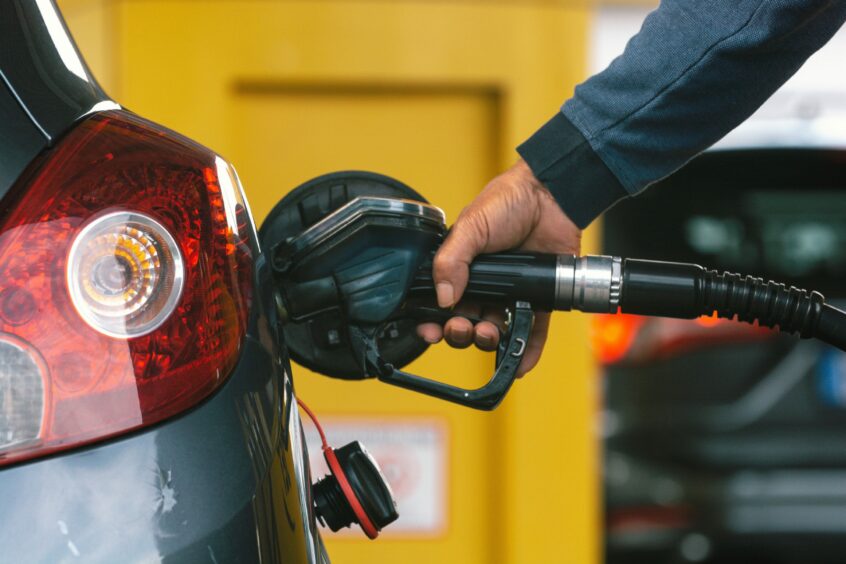
Ask any UK driver about the soaring price of petrol and they’ll probably tell you something like this: prices always rise with oil, but they never seem to track it lower.
The observation, to the extent that it’s true, only tells half the story. The reality is that retail costs at UK pumps are simply less volatile than prices on wholesale markets.
When there’s a sharp spike in the wholesale petrol market — as happened into early March and again in May — motorists are unlikely to suffer a comparable immediate surge. Instead they experience a slow-but-protracted increase as retailers adjust. That happened for weeks after the latest jump.
The flip side of not immediately passing on the price hikes, is that any sharp drop can take time to filter through too, assuming it does.
Brent futures are now down about 21% since their high this year, but retail gasoline has hardly budged. The crude is turned into petrol at oil refineries, but the wholesale fuel price also dropped more sharply than at the pump.
UK fuel retailers, especially supermarkets, have drawn criticism for not passing on the most recent declines.
There is some truth in that. Since peaking at the start of June, the wholesale price of petrol dropped by almost 19 pence a liter by July 11, according to data from S&P Global Commodity Insights compiled by Bloomberg and adjusted to include duty and value added tax. By contrast, the retail price of petrol only peaked in early July, and was only down by about 1.2 pence from that high on Monday.
Price Competition
But that is essentially the flip side of retailers taking time to adjust to the latest spike. So the subsequent decline is also likely to take time. Of course, there’s also a risk that wholesale costs jump again.
The British Retail Consortium said its members are doing all they can.
“Retailers understand the cost pressures facing motorists and will do everything they can to offer the best value-for-money across petrol and diesel forecourts, passing on cost reductions as they feed through the supply chain,” the lobby group said in a statement.
J Sainsbury Plc Chief Executive Officer Simon Roberts said on an earnings call last week that the supermarket chain works hard to be very competitive on petrol prices.
That doesn’t mean retailers don’t use fuel to boost their numbers. In the 13 weeks through May 1, Morrisons’ comparable grocery sales were deep into negative territory — down 6.4% – as people reined in food spending amid soaring inflation. When fuel revenue was included, group like-for-like sales turned positive again, up 2.5% on the same time last year.
It also doesn’t mean retailers won’t be criticized when the nation’s antitrust watchdog, the Competition and Markets Authority, reports the findings of an in-depth study in the autumn.
The CMA observed gaps between urban and retail fuel prices, and will no doubt be watching closely to see that, if wholesale prices do keep falling, those at the pump follow.
Recommended for you
